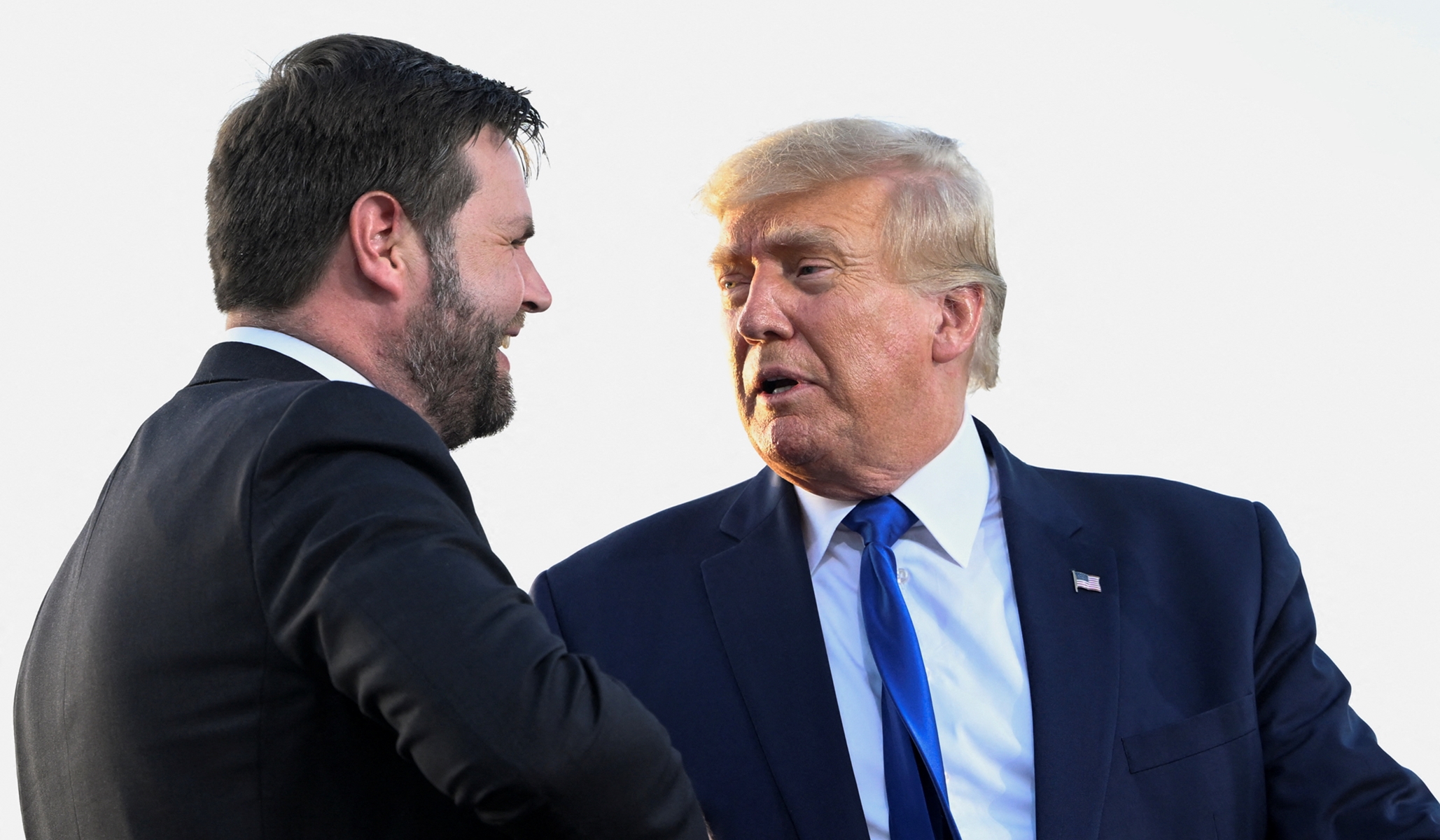


NRPLUS MEMBER ARTICLE I ’ll admit: I’ve long had a soft spot for J. D. Vance. I found the book that catapulted him into fame, Hillbilly Elegy, to be a stirring wake-up call to the societal tornadoes ripping through Appalachia. I consider his July 4, 2016, piece in the Atlantic, “Opioid of the Masses,” the best diagnosis of the Trump phenomenon written to this day. And no one has more succinctly pinpointed a description so fit for the former president than “cultural heroin.” As an Ohioan, I also felt that Vance represented the very best of the state’s blue-collar, hard-nosed ethos. Had 2016 (or even 2019) J. D. Vance been elected senator, he would have been my favorite politician in the country.
But when I voted for Vance in the Ohio Republican Senate primary last year, I did so less out of enthusiasm for Vance than out of fear that Josh Mandel might emerge victorious. Mandel’s buffoonery on the campaign trail was embarrassing and reprehensible, and I felt especially ashamed as an Orthodox Jew who had prayed next to Mandel on several occasions. But, honestly, Vance’s complete about-face on Donald Trump was only marginally less disappointing.
Take the following paragraph from Vance’s Atlantic piece:
During this election season, it appears that many Americans have reached for a new pain reliever. It too, promises a quick escape from life’s cares, an easy solution to the mounting social problems of U.S. communities and culture. It demands nothing and requires little more than a modest presence and maybe a few enablers. It enters minds, not through lungs or veins, but through eyes and ears, and its name is Donald Trump.
There are two possibilities to explain Vance’s 180: Either he still believes that Trump is “cultural heroin,” and simply chose to sacrifice his conscience for a Senate seat (“J. D. is kissing my ass he wants my support so much,” Trump said to Vance’s face at an Ohio rally during last year’s midterm elections), or his ideological transformation is sincere.
Either way, Vance has already shown skill in his short time as a federal legislator. His proposal during the debt-ceiling negotiations to roll back tax credits for electric vehicles and apply savings toward eliminating the “marriage penalty” from the Earned Income Tax Credit was clever. As Patrick Brown of the Ethics and Public Policy Center noted: “A lot of conservative politicians and scholars will pay lip service to the need to eliminate marriage penalties, but I’m not aware of any who have led with such a straight-forward proposal to eliminate them in the EITC as [Vance]”.
This is the tragedy of J. D. Vance. He is clearly one of the most intelligent members of Congress. His remarkable life story coupled with his gift for articulating it means his political ceiling is high. Yet rather than rely on his own plethora of talents, he has needlessly tied his political fortune to Donald Trump. And it’s obvious that Trump views Vance as little more than a personal errand boy. He even tried to send Vance as a stand-in to Friday’s FAMiLY Leadership Summit in Iowa, which Trump is skipping but every other major Republican candidate is attending. The request was denied; organizer Bob Vander Plaats cited his group’s longstanding policy to decline “surrogates” at its summits.
Some are quick to assume that Vance continues to make a calculated decision to say things he does not believe for the sake of his political success. I’m not so sure. Vance has already been elected, after all. At some level, it appears that Vance has convinced himself of the truth and righteousness of his current persuasions. In a January endorsement of Trump’s 2024 candidacy Vance penned in the Wall Street Journal, the senator concluded:
Donald Trump’s presidency marked the first real disruption to a failed consensus and the terrible consequences it wrought. That fact, more than any single accomplishment, is the enduring legacy of Mr. Trump’s first term. But there is much more to do, and I’m supporting him for president in 2024 because he’s the only person certain to do it.
He’s also embraced the ultra-combative style that Trump popularized among his own followers. On Sunday, Vance responded to a Twitter critique of his stance against providing munitions to the Ukrainian military by insulting the tweeter: “People like this are useful in that they reveal an extremely deranged mind. How did we get involved in quagmire after quagmire? Because verbal diarrhea like this has been called wisdom.” It’s worth noting, by the way, that I mostly agree with Vance on the merits. But I struggle to think of a pre-Trump J. D. Vance bashing a random Twitter user in this way.
“The great tragedy,” Vance noted in 2016,
is that many of the problems Trump identifies are real, and so many of the hurts he exploits demand serious thought and measured action—from governments, yes, but also from community leaders and individuals. Yet so long as people rely on that quick high, so long as wolves point their fingers at everyone but themselves, the nation delays a necessary reckoning. There is no self-reflection in the midst of a false euphoria. Trump is cultural heroin. He makes some feel better for a bit. But he cannot fix what ails them, and one day they’ll realize it.
It seems more obvious than ever that the “cultural heroin” has claimed another victim. A great tragedy indeed.
